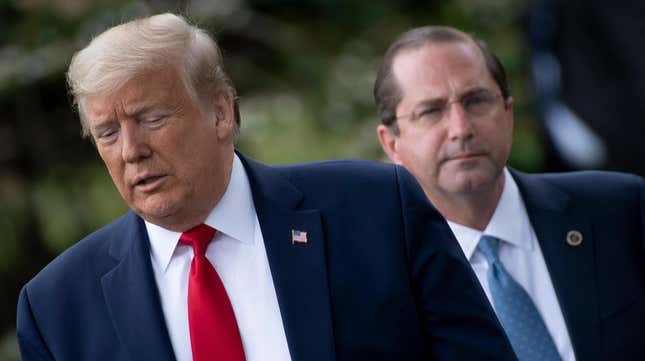Dismissing the Nation's Dead
Politics

On Monday, White House advisor Kevin Hasset’s attempt to ease concerns about growing unemployment numbers amidst the covid-19 pandemic backfired when some poor word usage laid bare his conception of human life.
“Our capital stock hasn’t been destroyed, our human capital stock is ready to get back to work, ” Hasset said with an easy smile. “So there are lots of reasons to believe that we can get going way faster than we have in previous crises.” That phrase, “human capital stock,” seemed to hang in the air. Hasset was clearly unaware or—more likely—unconcerned about the fact that he just characterized millions of American workers as numbers on a calculator, wiping away the frightened individuals who want to provide for their families without the risk of contracting the fatal virus that has left over 100,000 Americans dead.
In economic terms, the phrase “human capital stock” simply refers to the labor force and is typically used for large calculations. But Hasset’s use of such a niche and dehumanizing term emphasizes the disconnect between the Trump administration and the workers they’re depending on to get the economy back on track. This is a pattern: The administration hides those hurt by the pandemic, portraying them not as individuals but as numbers, an integer in a formula, and a tiny sacrificial piece of the nation’s population of 328 million.
Hasset’s controversial comment comes a week after Health and Human Services Director Alex Azar implied that America’s high covid-19 death toll is not due to missteps taken by the Trump administration’s pandemic preparedness, but rather the poor health of Americans themselves. During an interview with CNN’s Jake Tapper, Azar said, “Unfortunately the American population is…very diverse—it is a population with significant unhealthy comorbidities that do make many individuals in our communities, in particular African American, minority communities, particularly at risk here because of significant underlying disease health disparities and disease comorbidities, and that is an unfortunate legacy in our health care system that we certainly do need to address.”
Chronic diseases are, indeed, prevalent in the United States, but this is a deflection, one that is especially rich coming from a man whose political beliefs have exacerbated inequalities in the medical system, believes in a free market solution to America’s healthcare woes, and allowed insulin costs to double while he was the CEO of a pharmaceutical company. Azar’s culpability in this crisis is twofold: His role in maintaining an expensive health care system that disproportionately impacts the very populations he referenced, and his lackadaisical response to covid-19 in the first place.
But Azar’s tendency to blame covid-19 victims for their own misfortune isn’t new. Politico reports that in late April, Azar said that the uptick in covid-19 cases among meatpacking employees was not caused by conditions in the factories, but rather the workers’ “home and social” lives.
The administration’s tendency to put the onus on workers—their pre-existing conditions, their so-called lifestyles—is a Trumpian tic at this point, and their dismissiveness toward meatpacking employees extends beyond cruel remarks. When Trump signed an executive order using the Defense Production Act to ensure that meat plants stay open during the outbreak, it was coupled with a promise from Trump to protect meatpacking companies from legal liability if an employee contracts covid-19 on the job, so long as the facility is following safety guidelines. As of mid-May over 10,000 meat plant employees have been infected or exposed to covid-19, 30 died. Four United States Department of Agriculture inspectors have died from covid-19 as well—one can assume that best practices are not being conducted inside America’s meat plants. But workers are given the shaft while the CEOs running meatpacking plants and facilities have a physical and legal buffer to help them sleep at night, thanks to the Trump administration’s careless approach to workers and their safety.
Human sacrifice has a worker’s face, but for the Trump administration, these faces are nameless, miscellaneous.
When Texas Lieutenant Governor Dan Patrick insisted that America’s elderly will sacrifice themselves for the good of the United States economy in late March, he was simply tapping into what would soon become the Trump administration’s mantra as the virus progressed. Human sacrifice has a worker’s face, but for the Trump administration, these faces are nameless, miscellaneous. They’re not someone’s mother or brother or best friend or provider, they’re another number on an Excel spreadsheet. Better to hide the true toll the administration’s incompetence has had by throwing some numbers around, lauding the stock market’s rebound, and dismissing the nation’s dead as unhealthy individuals who were on their way out anyway.
The Trump administration refused to see the most vulnerable and marginalized Americans as individuals before this crisis. Expecting basic humanity from a president who believes personal protective equipment shortages are “fake news” is a gargantuan ask, one that will only yield disappointment.